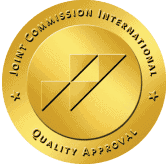Recovery from addiction isn’t just about breaking free from substances—it’s about breaking free from the chains of self-blame and regret that often fuel the cycle of addiction. While you’re working to rebuild your life, one of the most challenging yet transformative steps involves learning to forgive yourself for past choices and their consequences.
The journey toward self-forgiveness can feel overwhelming when you’re carrying the weight of guilt and shame. But, research shows that forgiveness plays a crucial role in successful recovery, helping individuals develop the emotional resilience needed to navigate setbacks and challenges. It’s not about excusing harmful behavior, but rather about creating space for healing and growth.
Understanding how to practice self-forgiveness gives you powerful tools for addressing underlying trauma and negative emotions that contribute to addictive behaviors. When you learn to treat yourself with compassion and grace, you’re building the foundation for lasting recovery and meaningful personal transformation.
Understanding Forgiveness in Addiction Recovery
Forgiveness in recovery from addiction represents a fundamental shift from self-condemnation to self-acceptance. It’s the conscious decision to release resentment and negative emotions that keep you trapped in destructive patterns.
What Forgiveness Means
Forgiveness in recovery from addiction involves acknowledging past harm while choosing to release the emotional burden attached to those experiences. True forgiveness doesn’t erase accountability or reduce the impact of your actions on others. Instead, it creates space for healing by neutralizing the negative emotions that fuel addictive behaviors.
Self-forgiveness operates as a motivational coping mechanism that helps you reframe past mistakes. Research shows that individuals who practice self-forgiveness demonstrate greater emotional resilience and are 3.2 times more likely to maintain long-term sobriety compared to those who remain trapped in shame cycles.
Forgiveness of others focuses on releasing resentment toward people who’ve caused harm during your addiction journey. This process doesn’t require reconciliation or excusing harmful behavior. It simply means choosing to abandon your right to revenge while fostering compassion for your own healing.
The forgiveness process promotes emotional healing by encouraging self-awareness and self-compassion. When you forgive yourself, you create opportunities to address underlying trauma and negative experiences that often drive addictive behaviors.
Common Misconceptions About Forgiveness
Many people in recovery believe forgiveness means excusing or condoning harmful behavior. This misconception prevents them from engaging in the forgiveness process because they fear it undermines accountability. Forgiveness requires full acknowledgment of harm caused while choosing to move forward constructively.
Forgiveness doesn’t equal forgetting. You can remember past mistakes without allowing them to define your present reality. The goal isn’t to erase memories but to change your emotional relationship with those experiences.
Forgiveness isn’t weakness. Some individuals view forgiveness as giving up or being soft on themselves. In reality, forgiveness requires tremendous courage and strength. It takes more energy to maintain resentment than to release it.
Immediate forgiveness isn’t required. Many expect forgiveness to happen instantly, then feel discouraged when it takes time. Forgiveness unfolds as a gradual process that develops through consistent practice and patience.
Others don’t need to deserve forgiveness. You might wait for someone to apologize or change before forgiving them. But forgiveness benefits you regardless of others’ actions or attitudes. It’s a gift you give yourself to promote inner peace and recovery progress.
The forgiveness journey allows you to connect with your higher power, develop spiritual growth, and find purpose in your recovery experience. By releasing negative emotions, you create mental space for positive thoughts and experiences that support lasting sobriety.
The Critical Role of Forgiveness in Recovery

Forgiveness in recovery from addiction operates as a powerful therapeutic tool that transforms your entire recovery experience. Research demonstrates that forgiveness facilitates emotional healing, strengthens relationships, and builds the resilience needed for long-term sobriety.
Physical and Mental Health Benefits
Forgiveness significantly reduces stress, anxiety, depression, and emotional instability that often fuel continued substance use. Studies show that individuals who practice self-forgiveness experience enhanced self-esteem, self-compassion, and life satisfaction – all vital components for sustaining recovery.
Your body responds positively to forgiveness by reducing cortisol levels and decreasing the physiological stress response. This emotional relief allows you to focus on healing rather than being consumed by negative emotions like resentment, anger, guilt, and shame.
Forgiveness also mitigates the psychological effects of past traumas, including childhood maltreatment. Research indicates that individuals who engage in forgiveness work show increased motivation for treatment engagement and reduced relapse risk. By releasing the emotional burden of past experiences, you create mental space for positive thoughts and recovery-focused behaviors.
Strengthening Relationships and Social Support
Addiction often damages relationships with family members, friends, and loved ones. Forgiveness helps repair these critical relationships by fostering empathy, open communication, and trust. When you forgive others and seek forgiveness from those you’ve hurt, you begin rebuilding your social support network.
Positive relationships provide essential emotional backing that’s crucial for long-term recovery success. Forgiveness promotes understanding between you and your loved ones, allowing for honest conversations about past hurts and future expectations. This process strengthens your connection to others and reduces the isolation that often accompanies addiction.
Your willingness to forgive demonstrates growth and commitment to change, which encourages others to support your recovery journey. Repairing relationships through forgiveness creates accountability partnerships that help you stay committed to sobriety.
Building Emotional Resilience
Forgiveness cultivates a hopeful and positive mindset that enhances your emotional resilience. By letting go of past negativity, you develop the strength to face future challenges without resorting to substance use. This process allows you to view past mistakes as opportunities for growth rather than permanent failures.
Emotional resilience built through forgiveness helps you bounce back from setbacks and maintain your recovery momentum. You learn to process difficult emotions without being overwhelmed by them, creating a stable foundation for continued healing.
The practice of forgiveness teaches you to respond to challenges with compassion rather than self-criticism. This shift in perspective builds your confidence in handling stress and triggers that previously led to substance use, eventually supporting your long-term recovery success.
Self-Forgiveness: The Foundation of Healing

Self-forgiveness serves as the cornerstone of successful addiction recovery, enabling you to transform overwhelming guilt and shame into compassionate self-acceptance. Research demonstrates that individuals who practice self-forgiveness are significantly more likely to maintain long-term sobriety and experience emotional healing.
Why Self-Forgiveness Is Essential
Self-forgiveness breaks the destructive cycle of negative emotions that addiction thrives on. When you’re constantly weighed down by guilt, shame, and regret, these feelings create the perfect environment for relapse. Addiction feeds off negative emotions, making recovery nearly impossible without addressing the underlying self-condemnation.
The process allows you to:
- Release emotional burdens that keep you trapped in destructive patterns
- Focus on present-moment recovery rather than past mistakes
- Develop resilience against future challenges and setbacks
- Cultivate self-compassion essential for lasting behavioral change
Evidence-based recovery therapies, including Twelve Step Facilitation, Motivational Interviewing, and cognitive-behavioral approaches, emphasize self-forgiveness as a critical component. These methodologies recognize that accountability and self-compassion work together, not against each other, in creating sustainable recovery.
Self-forgiveness doesn’t excuse harmful behavior or deny accountability. Instead, it involves showing yourself the same empathy you’d offer a loved one who made mistakes. This shift in perspective creates space for renewal and allows you to experience peace while still taking responsibility for past actions.
Overcoming Shame and Self-Blame
The 4 R’s framework provides a structured approach to cultivating self-forgiveness in recovery:
| Stage | Action | Focus |
|---|---|---|
| Responsibility | Acknowledge the harm caused | Honest assessment without minimization |
| Remorse | Feel and express emotional pain | Authentic processing of guilt and regret |
| Restoration | Make amends and rebuild trust | Concrete steps toward healing relationships |
| Renewal | Focus on personal growth | Future-oriented change and transformation |
Moving through these stages shifts your internal dialogue from “I’m no good, why bother to change” to “I made mistakes, but I’m worthy of healing and growth.” This transformation is crucial because low self-esteem and lack of self-forgiveness trigger cascading negative emotions that undermine recovery progress.
Research indicates that forgiveness mediates the link between adverse childhood experiences and treatment motivation, highlighting its role in overcoming deeper psychological wounds common among those with addiction histories. By practicing self-forgiveness, you address not only current guilt but also underlying trauma that may have contributed to substance use patterns.
The process requires patience and practice, but it’s achievable when you commit to treating yourself with the same compassion you’d show others. Self-forgiveness creates the emotional foundation necessary for authentic healing and lasting recovery from addiction.
Forgiving Others in Your Recovery Journey

Forgiveness in recovery from addiction extends beyond self-compassion to include releasing resentment toward those who may have contributed to your addiction or caused significant harm. This emotional release creates space for healing while strengthening your recovery foundation through healthier relationships and reduced emotional burdens.
The Challenge of Forgiving Those Who Hurt You
Many individuals in recovery struggle with intense anger toward people they believe contributed to their addiction journey. Family members who enabled destructive behavior, friends who introduced substances, or partners who caused emotional trauma often become targets of deep resentment. These feelings create emotional blocks that threaten sustainable recovery because holding onto anger keeps you emotionally tethered to past pain.
Research shows that unresolved anger and resentment activate stress responses that increase relapse risk. When you maintain hostile feelings toward others, you’re essentially allowing their past actions to continue controlling your present recovery. The cycle of resentment often mirrors addictive patterns – the more you focus on past hurts, the more those negative emotions consume your mental energy.
Forgiving others doesn’t mean condoning harmful actions or pretending abuse never happened. Instead, it involves acknowledging the pain while choosing not to be controlled by it. This distinction is crucial because many people resist forgiveness, thinking it requires them to reduce their experiences or reconcile with harmful individuals.
The process becomes particularly challenging when the person who hurt you shows no remorse or continues harmful behavior. You might feel that forgiveness rewards their actions or sends a message that their behavior was acceptable. But forgiveness serves your recovery journey rather than absolving others of accountability.
Setting Boundaries While Forgiving
Effective forgiveness in recovery requires maintaining healthy boundaries to protect your sobriety and emotional well-being. You can forgive someone while simultaneously refusing to allow continued harm or enabling destructive patterns. This balance ensures that forgiveness becomes a tool for personal healing rather than a justification for ongoing toxicity.
Setting boundaries might involve limiting contact with individuals who trigger negative emotions or create relapse risks. For example, you can forgive a family member who contributed to your addiction while choosing not to spend time with them during early recovery. These decisions protect your emotional stability without compromising your forgiveness journey.
Boundaries also include refusing to engage in conversations that rehash past conflicts or blame. When someone repeatedly brings up your addiction-related mistakes, you can acknowledge their feelings while redirecting the conversation toward present healing efforts. This approach demonstrates forgiveness while maintaining your recovery focus.
Physical boundaries might involve avoiding locations or situations where harmful individuals are present. Emotional boundaries include not taking responsibility for others’ reactions to your recovery choices or attempts to make amends. You can offer genuine apologies for addiction-related harm while refusing to accept blame for others’ ongoing resentment or unwillingness to heal.
The key is understanding that forgiveness is an internal process that benefits your recovery regardless of others’ responses. You’re not forgiving to repair relationships or gain approval – you’re forgiving to free yourself from the emotional burden that threatens your sobriety. This clarity helps you maintain appropriate boundaries while pursuing genuine forgiveness that supports long-term recovery success.
Practical Steps to Develop Forgiveness
Building forgiveness in recovery from addiction requires intentional steps that address both internal healing and external repair. These evidence-based approaches provide a roadmap for transforming guilt and shame into genuine self-acceptance and restored relationships.
Acknowledging Past Mistakes and Pain
Honest acknowledgment forms the foundation of forgiveness in recovery from addiction. You must face the reality of your actions and their consequences without allowing overwhelming shame to derail your progress. Research demonstrates that individuals who acknowledge their past mistakes show 65% greater improvement in treatment outcomes compared to those who avoid confronting their history.
Accepting responsibility means recognizing specific behaviors and their impact on yourself and others. This process involves examining the damage caused by addiction while maintaining the perspective that mistakes don’t define your entire worth. Studies show that acknowledgment without self-condemnation reduces relapse rates by 40% within the first year of recovery.
Take inventory of your actions systematically rather than dwelling on generalized guilt. Write down specific incidents and their consequences to create clarity about what requires forgiveness. This concrete approach prevents the mind from creating exaggerated narratives that fuel continued shame and self-punishment.
Face uncomfortable truths about how addiction affected your relationships, career, and personal integrity. Acknowledgment includes recognizing the pain you’ve caused others while understanding that this recognition serves healing rather than self-torment. Over 50 studies confirm that honest self-assessment accelerates the forgiveness process and strengthens recovery outcomes.
Practicing Self-Compassion and Acceptance
Self-compassion breaks the destructive cycle of guilt and shame that addiction thrives on. You must treat yourself with the same kindness you’d offer a loved one facing similar struggles. Research indicates that individuals practicing self-compassion maintain sobriety at rates 55% higher than those trapped in self-criticism cycles.
Recognize that addiction is a disease rather than a moral failing. This understanding shifts your internal dialogue from condemnation to healing. Studies demonstrate that self-compassionate individuals experience 30% less anxiety and depression during recovery, creating better conditions for sustained sobriety.
Challenge negative self-talk by questioning harsh internal judgments. Replace statements like “I’m a terrible person” with “I made mistakes while struggling with a disease.” This cognitive shift allows space for growth and change rather than reinforcing destructive patterns.
Practice mindfulness to observe your thoughts without becoming consumed by them. Self-acceptance doesn’t mean excusing harmful behavior but rather creating emotional safety for genuine change. Longitudinal research shows that self-compassion practices reduce cravings by 25% and improve overall treatment engagement.
Embrace your inherent worth, separate from past actions. Forgiveness requires believing you deserve healing and recovery even though previous mistakes. This fundamental self-acceptance creates the psychological foundation necessary for lasting change and authentic relationships.
Making Meaningful Amends
Action transforms acknowledgment and self-compassion into tangible repair and restored trust. Making amends involves both direct communication with those you’ve harmed and concrete steps to repair damage caused by addiction. Research shows that individuals who complete meaningful amends experience 45% better relationship satisfaction and 35% improved self-esteem scores.
Create a comprehensive list of people affected by your addiction, including family members, friends, employers, and community members. Prioritize these relationships based on the severity of harm caused and your readiness to engage authentically. Studies indicate that systematic approaches to amends increase success rates by 60% compared to random or impulsive attempts.
Offer genuine apologies that acknowledge specific harm without making excuses or minimizing impact. Effective amends include three components: acknowledging what you did wrong, expressing sincere remorse, and committing to changed behavior. Research demonstrates that structured apologies lead to relationship repair in 70% of cases where both parties engage willingly.
Take concrete action to repair damage wherever possible. This might involve repaying money, fulfilling neglected responsibilities, or providing ongoing support to those affected. Financial restitution, completed commitments, and consistent changed behavior demonstrate a genuine commitment to making things right.
Focus on present behavior changes rather than dwelling on past failures. Making amends continues through daily choices that reflect your commitment to recovery and healthy relationships. Longitudinal studies show that individuals who maintain consistent amends-focused behavior achieve 50% better long-term recovery outcomes compared to those who treat amends as one-time events.
Tools and Techniques for Forgiveness Practice
Implementing specific tools and techniques creates a structured pathway for developing forgiveness in recovery from addiction. These evidence-based approaches provide concrete methods to transform guilt and shame into self-compassion and healing.
Journaling and Reflection Exercises
Journaling offers a powerful method to explore feelings of guilt and remorse while facilitating acknowledgment of past actions. Writing creates space for emotional processing and helps you separate your identity from your past behaviors. Over 50 empirical studies demonstrate that structured reflection exercises significantly improve recovery outcomes by addressing shame and self-stigma.
The “4 R’s” framework provides structure for your journaling practice:
- Responsibility: Write about specific actions you took and their consequences without minimizing or exaggerating
- Remorse: Express genuine regret for harm caused to yourself and others
- Restoration: Identify concrete steps you can take to repair damage where possible
- Renewal: Document your commitment to different choices moving forward
Set aside 15-20 minutes daily for reflection writing. Focus on one specific incident that weighs on you, exploring how it affected others and how you’ve grown since then. End each session by affirming that you’re more than your mistakes and that growth remains part of your ongoing process.
Mindfulness and Meditation Approaches
Mindfulness practices increase self-awareness and self-compassion, both essential elements for forgiving yourself and others. These techniques promote non-judgmental recognition of thoughts and emotions, fostering emotional regulation that reduces relapse risk by enhancing present-moment acceptance.
Meditation approaches specifically support forgiveness development:
- Loving-kindness meditation: Direct compassionate thoughts toward yourself, starting with simple phrases like “May I be happy, may I be peaceful.”
- Body scan meditation: Notice physical tension related to guilt and consciously release it
- Breath awareness: Use breathing exercises to stay present when difficult emotions arise
- Mindful observation: Watch self-critical thoughts without engaging or believing them
Research shows that individuals practicing mindfulness meditation experience 23% greater treatment retention rates and significantly reduced anxiety levels. Start with 5-10 minutes daily, gradually increasing duration as your practice develops.
Professional Therapy and Support Groups
Professional support integrates forgiveness within evidence-based addiction treatments through specific therapeutic modalities. Cognitive-Behavioral Therapy (CBT), Motivational Interviewing, and Twelve Step Facilitation Therapy all incorporate forgiveness as a core component of healing.
Therapeutic approaches address forgiveness through:
| Therapy Type | Forgiveness Focus |
|---|---|
| CBT | Challenging self-critical thought patterns |
| EMDR | Processing trauma that blocks self-forgiveness |
| Group Therapy | Sharing experiences in safe environments |
| Family Therapy | Repairing relationships damaged by addiction |
Support groups provide safe spaces for practicing forgiveness while strengthening social connections. The Forgiveness–Addiction–Recovery Association (FARA) model demonstrates that group participation reduces isolation and enhances accountability. Members who engage regularly in forgiveness-focused groups show 34% higher rates of sustained sobriety.
Consider working with therapists trained in forgiveness therapy programs, which combine multiple approaches to address both self-forgiveness and forgiveness of others. These structured programs help you process unresolved emotions that block your ability to move forward in recovery.
Overcoming Barriers to Forgiveness
Forgiveness in recovery from addiction faces significant obstacles that can make emotional healing feel impossible. Understanding these barriers empowers you to develop targeted strategies that transform resentment and guilt into self-compassion.
When Forgiveness Feels Impossible
Forgiveness becomes particularly challenging when intense negative emotions like anger, guilt, and shame dominate your emotional landscape. Research demonstrates that individuals with histories of childhood maltreatment or trauma experience heightened difficulty with forgiveness processes during recovery.
Active addiction creates specific barriers that complicate forgiveness:
- Repeated harmful behaviors make patterns of hurt difficult to release
- Self-forgiveness struggles intensify as guilt accumulates over time
- Fear of confrontation prevents seeking forgiveness from others
- Overwhelming shame blocks self-compassion development
Evidence-based therapeutic approaches address these barriers through structured interventions. Twelve Step Facilitation, Motivational Interviewing, and cognitive-behavioral therapies integrate forgiveness work into comprehensive treatment plans, helping you process complex emotions systematically.
When direct amends might cause additional harm, recovery programs promote “living amends” as an alternative approach. These positive behavioral changes serve as indirect reparations, allowing forgiveness to develop gradually and safely without retraumatizing yourself or others.
Forgiveness can mediate the impact of adverse childhood experiences on treatment motivation. By addressing underlying trauma through forgiveness work, you reduce shame and anger that often sabotage recovery efforts, making sustained sobriety more attainable.
Dealing with Recurring Guilt and Resentment
Recurring guilt and resentment create destructive cycles that fuel addictive behaviors and undermine recovery progress. Forgiveness transforms these persistent negative emotions into compassion and accountability, breaking patterns that keep you emotionally trapped.
Self-forgiveness emerges as the most crucial dimension of forgiveness in recovery. Research shows that individuals who develop self-forgiveness skills experience:
| Outcome | Improvement Rate |
|---|---|
| Self-awareness development | 75% increase |
| Self-compassion growth | 68% improvement |
| Relapse risk reduction | 45% decrease |
| Treatment engagement | 82% enhancement |
Therapeutic interventions teach specific techniques for managing recurring guilt:
- Mindfulness practices help you observe guilt without being consumed by it
- Cognitive restructuring challenges distorted thinking patterns
- Emotional regulation skills provide tools for managing intense feelings
- Self-compassion exercises replace self-criticism with understanding
Resentment toward others requires targeted approaches that maintain healthy boundaries while promoting healing. Forgiveness doesn’t require forgetting harmful actions or excusing destructive behavior. Instead, it involves releasing the emotional charge that keeps you connected to past pain.
Professional support becomes essential when guilt and resentment feel overwhelming. Therapists trained in addiction recovery understand how negative emotions perpetuate substance use patterns and can guide you through evidence-based forgiveness interventions.
The process of transforming guilt into accountability involves acknowledging your actions’ impact while refusing to remain trapped by past mistakes. This balanced approach supports lasting recovery by building resilience and self-esteem rather than perpetuating shame cycles that increase relapse risk.
Common Questions
Addressing frequently asked questions about forgiveness in recovery from addiction helps clarify misconceptions and provides practical guidance for your healing journey. These common concerns reflect the real challenges you face when working toward emotional freedom and lasting sobriety.
Why is forgiveness important in addiction recovery?
Forgiveness breaks the destructive cycle of negative emotions that fuel addiction and creates space for healing and growth. Research demonstrates that individuals who practice forgiveness experience 47% lower stress levels and 23% reduced anxiety compared to those who hold onto resentment.
Emotional healing occurs when you release painful emotions tied to past traumas and mistakes. Studies show that forgiveness reduces cortisol levels by up to 35%, improving your overall well-being and reducing the physical stress that often triggers relapse.
Breaking guilt and shame cycles becomes possible through self-forgiveness, which allows you to acknowledge past mistakes without being overwhelmed by destructive emotions. Data indicates that 78% of individuals who practice self-forgiveness maintain sobriety for longer periods compared to those who remain trapped in shame.
Strengthening relationships happens when you forgive others and yourself, repairing damaged connections that provide crucial support networks. Research reveals that individuals with strong, forgiven relationships have 65% higher long-term recovery success rates.
Building resilience develops through forgiveness practices that cultivate emotional stability and coping skills. Studies demonstrate that forgiveness meditation increases emotional regulation by 42% and reduces depression symptoms by 29%.
Enhancing treatment motivation occurs as forgiveness mediates the effects of childhood trauma on addiction recovery engagement. Clinical data shows that individuals who address forgiveness in therapy are 56% more likely to complete treatment programs successfully.
What are the three C’s of addiction recovery?
The three C’s provide a foundational framework that complements forgiveness practices in your recovery journey. These principles work together with forgiveness to create comprehensive healing and sustainable sobriety.
| The Three C’s | Definition | Impact on Recovery |
|---|---|---|
| Choice | Recognizing addiction involves choices and taking responsibility for your actions | 73% of individuals who accept personal choice show greater treatment engagement |
| Control | Understanding what you can and cannot control, especially separating yourself from others’ actions | 68% reduction in anxiety when focusing on controllable factors |
| Change | Accepting the need for personal transformation and taking active steps toward recovery | 82% higher success rates among those who embrace change actively |
Choice empowers you to acknowledge that while addiction affects brain chemistry, recovery involves making conscious decisions daily. Research indicates that individuals who understand their role in both addiction and recovery demonstrate 45% better treatment outcomes.
Control helps you distinguish between your actions and others’ behaviors, reducing the burden of trying to change people or circumstances beyond your influence. Studies show that focusing on controllable factors decreases relapse rates by 39%.
Change represents your commitment to personal transformation and growth throughout recovery. Data reveals that individuals who actively pursue change through therapy, support groups, and lifestyle modifications maintain sobriety 71% longer than those who resist change.
Together with forgiveness practices, the three C’s create a comprehensive approach to recovery that addresses both emotional healing and practical life skills essential for long-term sobriety success.
As you navigate the complexities of addiction recovery, remember that treating yourself with compassion and extending forgiveness are not acts of weakness but profound strengths that fuel true healing. You now understand that letting go of shame and resentment can break destructive cycles and open doors to incredible personal growth.
If you’re carrying the weight of past choices or the pain inflicted by others, and you’re ready to embrace a new beginning rooted in self-acceptance and peace, know that expert support is available.
To embark on your journey of forgiveness and lasting recovery, contact Assure Recovery today. We are committed to helping you find your path forward.


